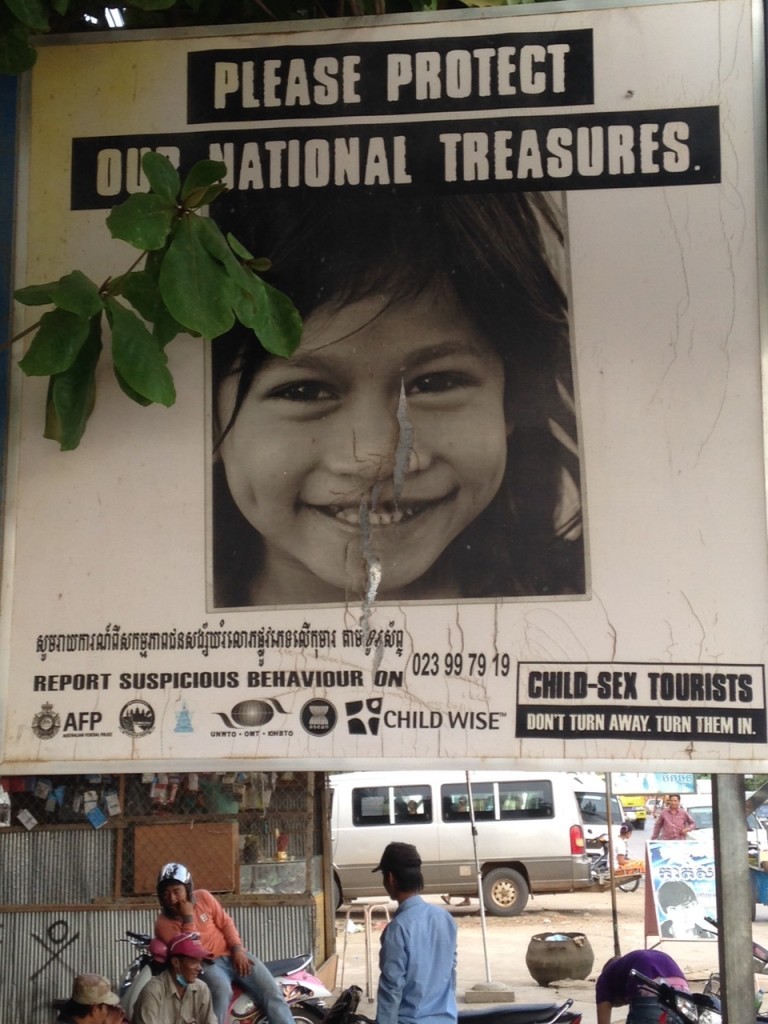My sister Miriam and I were walking down a dusty street in Poipot, a border town in Cambodia, with Thailand a stones-throw away, when the darkest moment in our trip took place.
I travelled with Samaritan’s Purse to Cambodia in the Spring (and wrote about it in the Sep/Oct Faith Today) on a Water for Kids project. The trip was primarily about the construction of water filters that bring clean water to areas where there is none. But it also included visiting Poipot to see the work Samaritan’s Purse does around human trafficking and illegal migration. This involves mushrooms, but more about that at the end.
From the moment we pulled into town in our little bus, Poipot had a different feel to it for me, at least the downtown core. And at least compared to the other lively and colourful spots we had seen.
24 hours does not an expert make, of that I am very aware.
But there was a heaviness to Poipot that I had not felt before during our trip. It felt thick and menacing, dark and dangerous.
I did not sleep well at the City Poi Pet Hotel that night, despite our Christmas morning-like excitement over the air conditioner chugging away in the room. Blessed and cursed at the same time with a rich imagination, I pictured a snake crawling onto my bed from the corner of the room as I laid awake that night, listening to the sounds of the street below our window.
I think my unease came mostly from the scene my sister and I had witnessed earlier in the day. Three older caucasian men walked slowly down the road ahead of us, heading to their hotel next door to ours. They walked with a kind of saunter and swagger, a cocky confidence that is painful to watch. They were walking on top of the world, not just on the side of a worn-down road.
We watched as they handed a young boy money he did not ask for, as he headed home from school in his rumpled uniform and worn-out backpack. He looked puzzled.
Then, they paused in their stroll to watch a young Cambodian woman crouched down on the sidewalk, doing something I cannot now remember. But it was some domestic, ordinary chore. An every-day thing.
They clearly enjoyed the view. Miriam and I agreed the men looked like they were shopping. Browsing their way down the streets of a town known for its high rates of human trafficking. As if it was a shopping mall.
Maybe we were making it all up in our heads.
Maybe the poster we had just seen warning about the sexual exploitation of children made us only interpret what we were seeing in the worse possible light. Maybe these were nice men in town for the most noble of reasons.
But then we walked by the woman ourselves. She raised her head and our eyes met the way women’s eyes meet sometimes in moments like that. I knew she had felt the exact same way. They were up to no good. And in Poipet, no good is very bad.
In this border place of very sharp edges, Samaritan’s Purse does not knock down doors in rescue attempts to fight human trafficking. Their Safe Migration and Trafficking Awareness program focusses instead on generating income opportunities so that Cambodians do not feel pressured to migrate illegally, or be trafficked against their will, into work situations in nearby Thailand. With more income, there are more options.
As part of our learning in Poipet, we stomped around on hay to soften and condition it for covering and providing nutrients to what can be highly profitable mushroom beds for Cambodians living in this area. (You can read more about it and watch a video clip of the team doing this work here.)
Five dollars will give a grower a bed of mushrooms. If things go well, they can make $25 off one bed. Mushrooms grow best in the damp. And in the dark.

